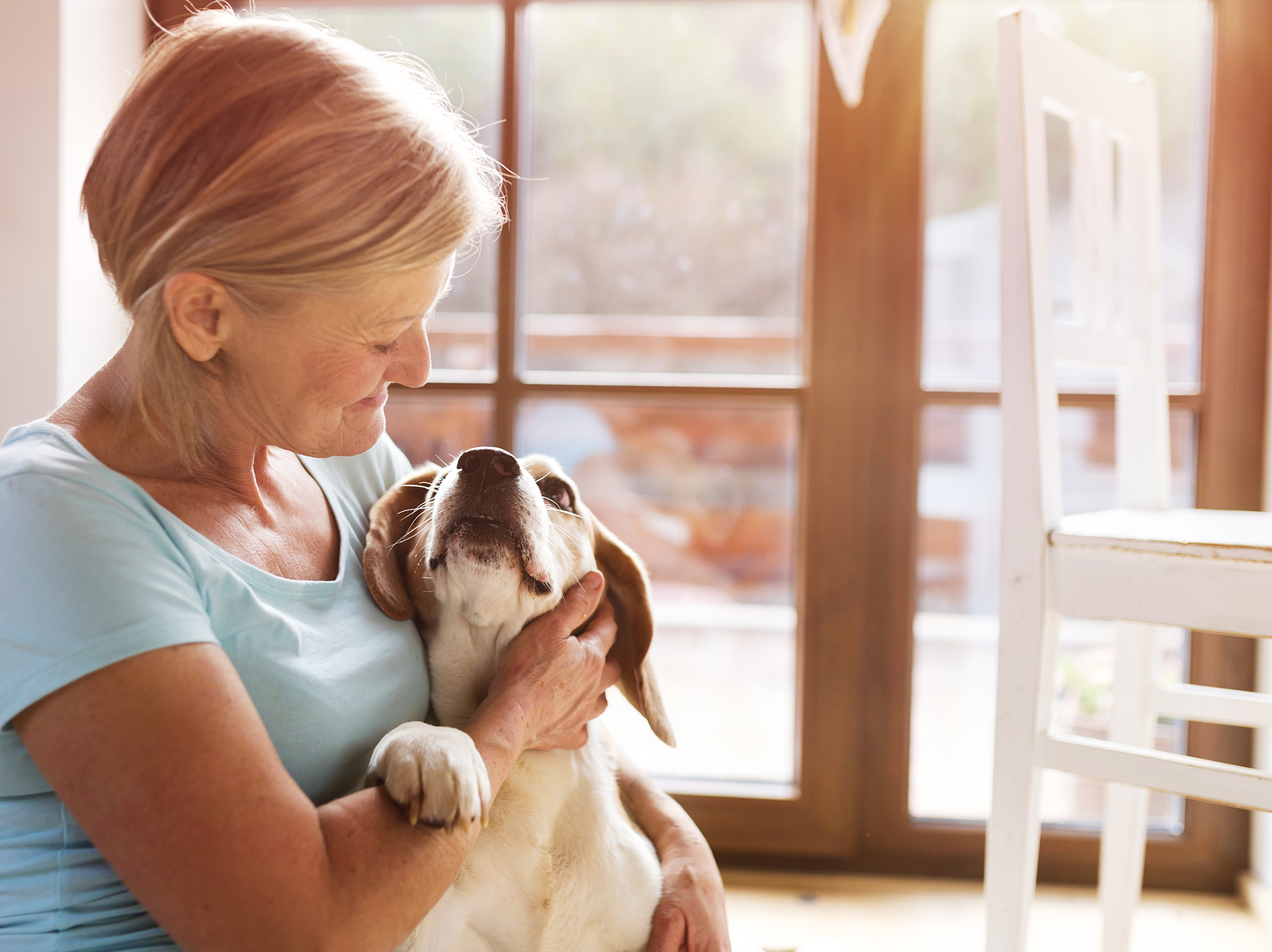
Animal pain awareness month - Seven signs of ageing in pets
5th September, 2022
As with humans, as our pets get older we start to notice telltale signs that they aren’t quite the energetic puppy or kitten that they used to be. They could be getting greyer around their snout, or perhaps they take a little longer to fetch the ball nowadays, either way they may be starting to show their age a little.
As responsible pet owners, it’s key for us to stay on top of these signs, so that we can continue to support our pets as they age and provide them with everything they need for a long, loving retirement. So, what signs should you look out for in your older pet?
- Eye and vision changes – animals can suffer from a range of age related eye conditions such as cataracts, Iris Atrophy and other retinal changes. If you notice changes in your pet’s behaviour that could indicate an eyesight issue, you can support them with additional night lights indoors and outside, trying not to change the layout of their environment, and just being aware that they may not be able see things as well as they used to.
- Hearing loss - The loss of hearing is common in older pets and this change typically occurs in the last third of a breed’s normal lifespan. Believe it or not, using hand signals can really help when trying to communicate with deaf pets, so it’s worth getting them used to this early on, before their hearing starts to fade.
- Dry nose or changes in the colour of the nose – as pets age the pigmentation of the skin on their nose can get lighter and in some cases the skin can become dry and cracked. For mild cases, it is okay to try applying chapstick or petroleum jelly to the affected area, but you should consult your vet first before taking any action.
- Skin and coat health – over time, age affects the coats of older pets and can result in skin conditions such as dry skin, hair shedding and skin infections. Keeping up with their grooming can help manage these conditions, as can certain medicated shampoos and diet supplements.
- Mobility – Arthritis is common in older dogs and cats and affects joints causing pain, stiffness, limpness and lameness. If you notice that your furry friend is struggling to jump up on things, or appears to be experiencing pain when exercising, it’s worth checking in with your vet to see if they can support with pain control, or provide advice on dietary supplements to support mobility.
- Weight loss - Weight and muscle loss is also common in older pets which can cause difficulty with standing up, walking, or running.
- Voice changes – like humans, the sounds of an animal’s bark changes as they get older. This is usually nothing to worry about, but in severe cases it could be worth talking to your veterinarian, as it could be related to laryngeal paralysis.
- Behavioural changes – did you know that approximately 50% of dogs who are older than 10 show behavior changes? They can be forgetful and become confused, which as a result can make them more anxious. You can support them by making sure they aren’t left alone in unfamiliar areas, and continue to provide them with mental stimulation such as training, exercise and games.
If you see any signs of aging that you are particularly worried about, it’s always worth speaking to your vet. They can conduct an older pet check-up for you and help alleviate any worries you might have.
Or, why not talk to FirstVet? Their 24/7 365 veterinary support is included in your policy if you’re a Petwise customer. You can sign-up here if you haven’t already!